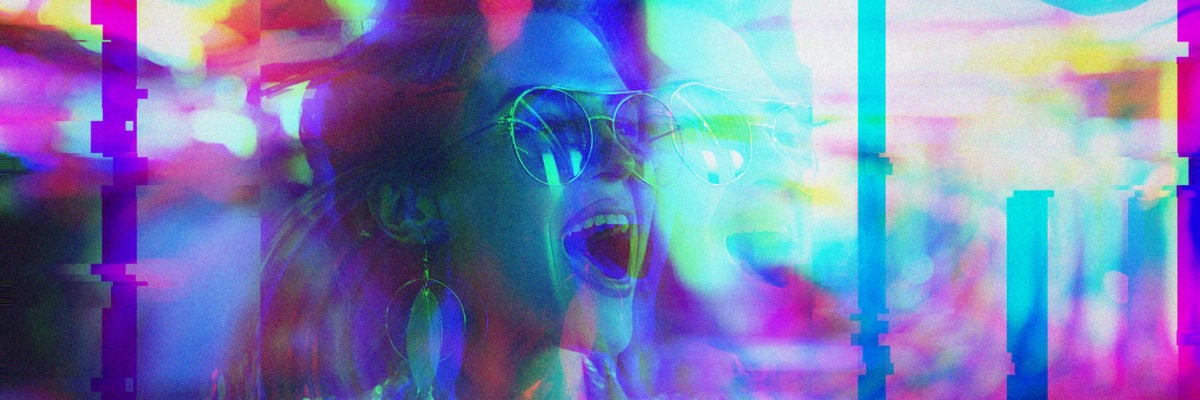
“The use of drugs inflicts very grave damage on human health and life. Their use, except on strictly therapeutic grounds, is a grave offense. Clandestine production of and trafficking in drugs are scandalous practices. They constitute direct co-operation in evil, since they encourage people to practices gravely contrary to the moral law” (CCC 2291).
What Do We Mean by “Drugs”?
Any moral analysis of drug use should begin by acknowledging that “the use of drugs” is an overburdened phrase, one that strains to encompass a range of substances, effects, and contexts. Also, the Catechism of the Catholic Church (CCC) offers moral guidance in paragraphs, not tomes, and few topics can be duly treated within such narrow confines.
That being said, we know the Church’s longstanding formula: full knowledge + full consent + grave matter = mortal sin. Thanks to paragraph 2291’s repetition of “grave” and “gravely”—to say nothing of “scandalous” and “evil”—and the accompanying carve-out for “strictly therapeutic” use, the thrust of the Church’s general teaching is clear: the knowing, consensual, and non-therapeutic use of drugs is a mortal sin.
Since drug use is such a complex phenomenon, however, it’s natural to wonder whether there might be exceptions to this rule, particularly in the case of psychedelic drugs like LSD, psilocybin, mescaline, MDMA, ibogaine, and DMT.
Unlike other drugs that consistently produce the same results, psychedelic compounds generate experiences that are strange, intensely so, and quite unpredictable. The early transpersonal psychologist Stanislav Grof called them “non-specific mental amplifiers.”
Still, people have found their psychedelic trips at least interesting, if not beneficial. Also, these drugs are not physically dangerous or addictive like fentanyl or cocaine, and media reports promote them, if on slender evidence, as cures for PTSD, depression, addiction, and other ailments. As a result, some of our friends and neighbors who a decade ago wouldn’t have touched an LSD tab with a ten-foot pole now proclaim psychedelics to be the path to all kinds of good things: healing, wisdom, mood enhancement, spiritual encounter, sheer delight—or all of the above.
Such rapturous claims clang against the dire warnings of the Catechism. In the course of giving parish talks about psychedelics, I’ve found that on this topic, at least, many Catholics are indeed dazed and confused.
The Sanctity of Consciousness
Although the fact that drugs “inflict very grave damage on human health and life” is certainly a good basis on which to recognize a drug’s sinfulness and forbid its use, it is not the only one. And what the Catholic Church has long recognized, in continuity with its roots in ancient Judaism, is that human consciousness is inherently spiritual.
Our being made in the “image and likeness” of God means, among other things, that we possess rational awareness and free will. Over the course of our lives, we alter this God-given consciousness in various ways, both positive and negative, through our interactions with our environment and with others, including God. In all these interactions, our intentions matter.
It bears pointing out that none of this Catholic anthropology is especially controversial, and many self-styled “psychonauts” agree with the Church’s vision up to this point. Where do we diverge, then, and why?
The Catholic Church, in continuity with Judaism before it, has always encouraged the pursuit of holiness. (“Be holy as I, the LORD, am holy”; “this is the will of God for you, your holiness”; etc.) Distinct from wisdom or benevolence, Jewish and Christian holiness is born from ongoing consecration to the one true God. As such, holiness is not achieved in grand visions or singular moments, but in the small, consistent acts of love, service, and piety that make up a lifetime. Even St. Paul’s encounter with Christ on the Damascus Road was the beginning of a sanctification process, not its culmination, as he himself recognized.
Thus, the question of whether psychedelics generate “authentic” mystical experiences, as recent scientific studies have clumsily tried to evaluate, is a red herring. First, they don’t: the Almighty doesn’t obediently hop to and reveal himself because a human ate a mushroom.
Even if psychedelics did produce a mystical encounter, it wouldn’t matter: a relationship with God is based on faith, not fireworks. To insist otherwise—and to hazard our responsibilities and relationships by ingesting a powerful, unpredictable drug in search of spiritual epiphany—and perhaps afterward to leave the Church while clinging to a private revelation of dubious provenance—is sadly to miss the point.
Psychedelics and the Christian God
By proposing to make widely available the divine encounters that used to be the province of spiritual superstars, and by eliminating the need for a pre-existing spiritual practice and discipline, and by downgrading ethics in favor of individual license, psychedelics are a powerful temptation for our unmoored, undisciplined, and spiritually ravenous age. Furthermore, the psychedelic experience gratifies our era’s individualism by tailoring itself to fit each individual psyche.
It is no surprise that many people look to psychedelics to transform Western culture and even to save our species. Nor is it a secret that by and large, the “mystical” experiences offered by psychedelics tend to lead people away from the Church and away from organized religion in general.
Needless to say, this movement away from faith, which is very much an anti-Pentecost unfolding in our own time, is an egregious offense against the Holy Spirit. To embrace a psychedelic as a spiritual aid is to turn a willfully blind eye to the way holiness actually works—in the lives of countless Catholic saints, say, who were both radically loving and psychedelically virginal without exception.
Psychedelics insult the other persons of the Trinity as well. In the case of the Son, they trespass against both his divinity—by denying his unique Sonship and his authoritative commands (including those which come through his Church, like CCC 2291)—and also his incarnate humanity, which was entirely oriented toward our redemption.
There is no end to the cascade of blasphemies and offenses against our Lord, in fact. To offer one example, psychonauts have noticed that the Nahuatl word for psychedelic mushrooms, teonanácatl, which can be translated as “flesh of the gods,” resembles Catholic sacramental language. In their telling, this marks psychedelic mushrooms out as a superior form of the Eucharist.
Now, it’s not clear how a slippery translation of a pre-Christian word serves as an argument; one can just reply that the Aztecs were wrong in their lofty estimation of their mushrooms, as they were wrong about other things. But it is hard not to see a profound poverty of discernment in this ready equation of the Eucharist with a psychedelic mushroom that fueled a regime of human sacrifice.
Finally, psychedelics offend the creative authority of the Father. Although our reason has its uses, it also has limits. Eve learned this the hard way in the Garden of Eden. And as in Eden, God the Father is entitled to set boundaries for his children and to prohibit certain activities.
Will we always understand why? Of course not. We are far less equal to God in our understanding than a human infant is to a parent who insists that it’s bedtime. Yet despite our own admitted limitations, we keep renewing our spirit of rebellion, forging our own shackles and flying high as kites on the updrafts of our own self-esteem. Flatteries and ear-tickling claims can’t come our way fast enough, whether from chatty serpents or breathless podcasters, provided they affirm our self-illusions.
At the end of the day, Catholicism is largely about swallowing our pride and trusting our heavenly Father, whether we understand his designs or not.
The Dark Side of Psychedelics
As we’re sometimes reminded, in the original Greek and Hebrew, to sin is to “miss the mark.” Having shown how the use of psychedelics misses the mark of relationship with the Holy Trinity, we don’t need to go into great detail about the other set of reasons the Church prohibits them—namely, that versions of these drugs have been used since ancient times to worship gods other than Jesus Christ. (Like the Jewish and Christian anthropology described above, this link between psychedelics and non-Christian worship is also uncontroversial—more common ground for Catholics and psychonauts, it turns out.)
Although we can and should hope in God’s mercy, it’s troubling to know that huge numbers of people are rushing to ingest drugs and join rituals associated with a paganism that until a few decades ago had next to zero attractive power for Christians. It’s worth noting that new Catholics in Africa, India, and elsewhere are at this moment fleeing this same paganism with joyful relief. It’s interesting how the First Commandment has become so hard for first-world Christians to fathom now that pleasure, autonomy, and social status are at risk.
“Strictly Therapeutic” Use
Going back to the text of CCC 2291, we recall that the Church’s moral evaluation changes when people take drugs on “strictly therapeutic grounds.” Though research is in its infancy, psychedelics hold great therapeutic promise for treating mental illness. If they are found to be beneficial, there will be a strong argument for their distribution and use. (We have not gone into the risks of psychedelics here, but negative outcomes, though rare, are very real, from psychosis to grave self-harm to cases of Hallucinogen Persisting Perception Disorder.) Scientists are also working to develop “non-hallucinogenic psychoplastogens” that would offer many of the benefits of existing psychedelics (also known as psychoplastogens) without the considerable side effects—the emotional swings, the prolonged disorientation, etc. The Catholic Church could presumably support these non-hallucinogenic compounds without reservation.
Again, the moral question hangs on intention and the cooperation of a competent authority. A soldier engaging enemies on a battlefield stands on different moral ground from a civilian who pulls a gun at a party. It can be morally licit for a woman to take a contraceptive pill for relief from heavy periods, but not to prevent pregnancy.
In a similar way, someone who takes psychedelics on the recommendation of a trusted personal physician stands in a moral position unlike that of a recreational user. The Church’s moral theologians and bioethicists will have their work cut out for them determining which treatments qualify as “strictly therapeutic,” given that psychedelics are currently presented (and very possibly oversold) as cures for such varied conditions. But at a bare minimum, “strictly therapeutic” implies that a reputable medical professional—and not just one who is known to have a loose hand with the prescription pad—is involved throughout the process.
Those interested in taking psychedelics for medical reasons are morally obligated to examine and purify their true intentions, and to reckon with the fact that along with psychological risks, these drugs also pose real spiritual risks. From an initial diagnosis to the prescription to administration of a psychedelic drug, it falls on medical authorities to dignify their vocations by showing appropriate care for the human needs of their patients.
Our Human End
As intriguing as psychedelics can be, the Church has always taught that God, who is never outdone in generosity, promises something better. By shunning sin—and by submitting to the Church’s infallible teaching when it comes to faith and morals, whether we understand that teaching or not—we are assured of eventually entering into a cosmic experience that will far outstrip even the most blissful psychedelic journey—one that will be bodily, besides, and endless, and interpersonal to its core.
In fact, heaven is as far removed from psychedelic experience as the sun is from the moon. Only in heaven will we find the peace that is so notably absent in the restless explorations and “trips” of today’s psychonauts. There, instead of expanding isolated consciousnesses in the presence of a simulacrum of divinity, we’ll find ourselves extending real, loving relationships with the entire host of heaven: with the companies of loyal angels, and with the innumerable saints washed and saved by Jesus Christ, and with the Trinity who has always been, who presently is, and who always will be perfectly real.



